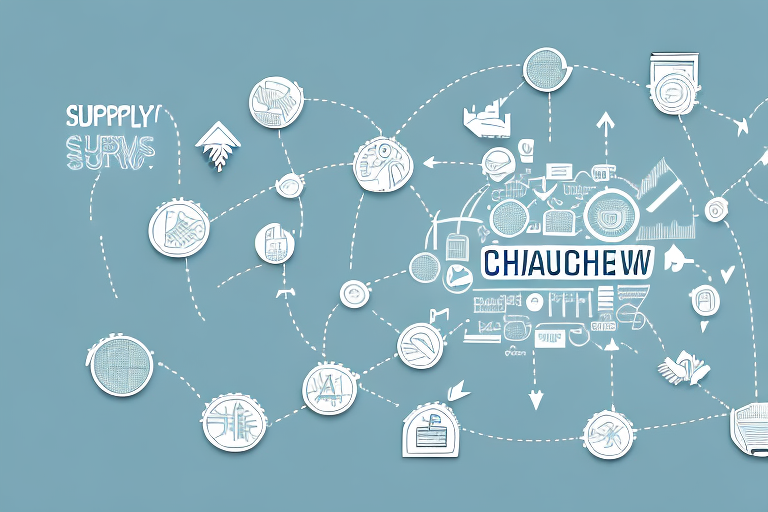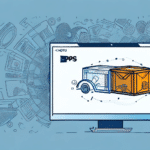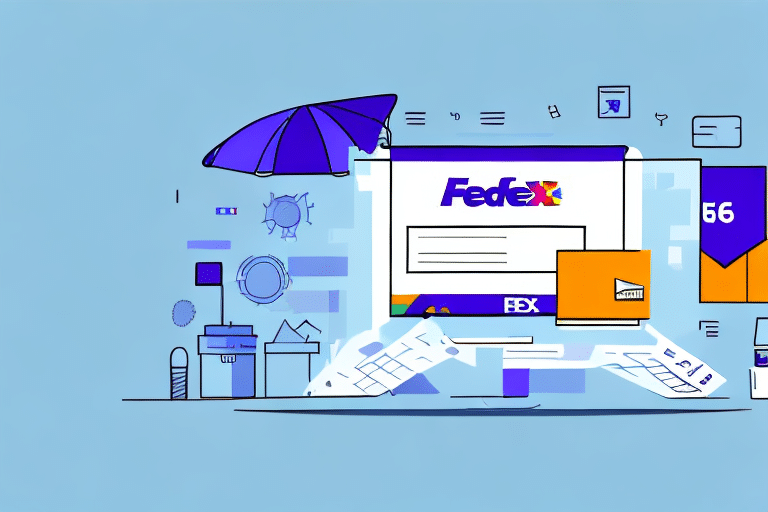Understanding the Benefits of Express Bill of Lading in Supply Chain Management
Global trade is a cornerstone of the modern economy, facilitating the movement of goods across oceans, continents, and borders. Efficient shipping requires a well-coordinated approach to ensure that products are delivered on time, safely, and cost-effectively. A critical component of this process is the Bill of Lading (BOL), a legal document that formalizes the contract between a shipper and a carrier for the transportation of goods.
What is a Bill of Lading and How Does it Work in Supply Chain Management?
A Bill of Lading serves as proof of ownership of the goods being shipped and outlines the terms and conditions of the shipment. Key details include:
- Description of the goods
- Mode of transportation
- Origin and destination of the shipment
- Special instructions
According to the International Chamber of Commerce report, effective use of BOLs enhances transparency and traceability within the supply chain, allowing all parties to monitor and track shipments in real-time.
Additionally, the BOL is a legally binding document that protects the interests of both the shipper and the carrier. It ensures the goods are delivered to the correct recipient and in the agreed-upon condition. In cases of disputes or damages during transportation, the BOL can be presented as evidence in court proceedings, underscoring the importance of its accuracy and completeness.
The Importance of Accurate Documentation in the Shipping Industry
The shipping industry operates within a complex network of regulations and stakeholders, making accurate documentation indispensable for smooth operations. Non-compliance with regulatory requirements can result in significant fines, shipment delays, and damage to a company's reputation. Critical documents include:
- Bill of Lading
- Commercial Invoice
- Customs Declarations
For example, the Commercial Invoice provides essential details about the goods, their value, and terms of sale, which customs officials use to determine applicable duties and taxes. Errors in these documents can lead to costly delays and additional expenses.
Accurate documentation also plays a vital role in customer satisfaction. Clients expect timely and precise information regarding their shipments. Any discrepancies or delays in documentation can result in frustration and diminished trust, ultimately affecting long-term business relationships.
How the Express Bill of Lading Can Expedite the Shipping Process
Traditionally, Bills of Lading were issued in paper form, a process that was often cumbersome and prone to delays due to manual handling and verification. The introduction of the Express Bill of Lading has revolutionized this aspect by leveraging digital technology to streamline documentation processes.
The Express Bill of Lading is a digital document accessible and processable online, eliminating the need for physical paperwork. This shift to electronic BOLs has led to:
- Faster issuance and transmission of BOLs
- Reduced administrative costs
- Minimized risk of errors associated with manual entry
With the Express BOL, shippers can efficiently create, edit, and transmit shipping documents, significantly reducing the time and effort required to manage paperwork.
Furthermore, the Express Bill of Lading incorporates enhanced security features. Digital documents are encrypted and accessible only to authorized personnel, safeguarding sensitive information. This added layer of security helps prevent fraud and unauthorized access, providing peace of mind for both shippers and carriers.
Reducing Costs with Efficient Bill of Lading Management
Adopting electronic BOLs can lead to substantial cost savings by:
- Eliminating the need for physical storage solutions
- Reducing labor costs associated with handling paper documents
- Minimizing the risk of errors or document misplacement
Moreover, electronic BOLs enhance transparency and security within the shipping process. Real-time tracking of shipments reduces the likelihood of lost or delayed goods, while secure, tamper-proof records decrease the potential for fraud or disputes.
Compliance with regulatory requirements is another significant advantage. Electronic BOLs ensure that all necessary information is accurately captured and easily accessible, helping shippers and carriers adhere to international laws and avoid fines and penalties.
Enhancing Transparency in Supply Chain Operations with Express Bill of Lading
Transparency is crucial in supply chain operations, and the Express Bill of Lading system enhances this by providing real-time tracking and monitoring capabilities. This improvement leads to better collaboration and communication among all stakeholders, including suppliers, carriers, and customers.
Additionally, an Express Bill of Lading system reduces the risk of fraud and errors by minimizing the chances of document tampering or loss. All parties have access to the same accurate information, reducing misunderstandings and accelerating dispute resolution.
Streamlined customs clearance is another benefit. Accurate, up-to-date shipment information allows customs officials to verify contents swiftly, decreasing inspection times and reducing delays at ports and borders. According to a study by ShipScience, digital BOLs can cut customs clearance times by up to 30%, significantly boosting overall supply chain efficiency.
The Role of Electronic Bill of Lading in Modern Supply Chain Management
The transition to electronic Bills of Lading represents a significant advancement in supply chain management. Key benefits include:
- Real-time tracking of goods
- Elimination of physical documentation
- Increased supply chain efficiency
Electronic BOLs offer enhanced security and accuracy, addressing the vulnerabilities associated with traditional paper-based systems. Digital BOLs are encrypted and accessible only to authorized individuals, ensuring data integrity and reducing fraud risks. This security fosters trust among supply chain partners, facilitating smoother transactions and collaborations.
Common Challenges Faced by Shippers and Carriers with Traditional Bill of Lading
Traditional paper-based BOL systems present several challenges, including:
- Susceptibility to loss or damage, leading to shipment delays
- Increased potential for fraud through document alteration
- Lack of transparency and real-time tracking capabilities
- Manual processing errors and inconsistencies
These challenges not only increase operational costs but also strain relationships between shippers and carriers. The absence of real-time visibility into shipment status can result in missed deadlines and financial losses, highlighting the need for more efficient, digital solutions.
Benefits of Using a Digital Express Bill of Lading for International Trade
International trade involves navigating complex logistics and stringent regulatory requirements. Implementing a digital Express Bill of Lading offers numerous advantages:
- Improved Communication: Digital BOLs can be formatted and transmitted as single files, ensuring clear and consistent communication across multiple jurisdictions.
- Enhanced Security: Digital signatures and encryption technologies secure BOLs against forgery and unauthorized access.
- Operational Efficiency: Real-time access and updates streamline the supply chain, reducing processing times and minimizing delays.
These benefits contribute to smoother international transactions, lower costs, and greater compliance with global trade regulations.
Streamlining Freight Payment Processes with Express Bill of Lading
The Express Bill of Lading integrates seamlessly with invoicing and payment systems, facilitating prompt and accurate financial transactions. Key benefits include:
- Centralized digital repository for all shipping documents
- Automated reconciliation of payment records
- Accurate allocation of revenue and expenses
By centralizing documentation, companies can streamline their financial workflows, reducing the time and effort required to manage payments. This efficiency not only enhances cash flow management but also strengthens financial accountability.
The Future of Bill of Lading: Trends and Innovations to Watch Out For
The future of BOLs is being shaped by ongoing technological advancements. Emerging trends and innovations include:
- Blockchain Technology: Offers secure, immutable storage of transaction records, enhancing trust and reducing fraud risks.
- Artificial Intelligence: Facilitates predictive analytics and automated processes, improving decision-making and operational efficiency.
- Internet of Things (IoT): Enables real-time tracking and monitoring of shipments, providing granular visibility across the supply chain.
These innovations promise to further transform supply chain management, making it more resilient, transparent, and efficient.
Case Studies: Examples of Companies that Have Benefited from Express Bill of Lading Adoption
Several industry leaders have successfully implemented Express Bill of Lading systems, realizing significant improvements in their supply chain operations:
- Maersk: As the world's largest container shipping company, Maersk introduced its digital BOL platform in 2020. This transition resulted in a 40% reduction in documentation processing time and substantial cost savings.
- Amazon: By adopting digital BOLs, Amazon has enhanced its logistics efficiency, ensuring faster delivery times and improved customer satisfaction.
- DHL: DHL's implementation of electronic BOLs has streamlined its international shipping processes, reducing error rates and enhancing compliance with global regulations.
Best Practices for Implementing an Express Bill of Lading System in Your Organization
Transitioning to an Express Bill of Lading system can significantly enhance your supply chain management, but it requires strategic planning and execution. Key best practices include:
- Stakeholder Buy-In: Engage all relevant parties early in the process to ensure support and smooth adoption.
- Technology Selection: Choose a technology provider that offers scalability, security, and seamless integration with existing systems.
- Data Optimization: Ensure that data is accurate, consistent, and well-organized to facilitate efficient processing.
- Integration with Back-End Systems: Ensure that the Express BOL system integrates effectively with other logistics and financial software.
Choosing the Right Technology Provider for Your Express Bill of Lading Needs
Selecting the appropriate technology provider is crucial for the successful implementation of an Express Bill of Lading system. Consider the following factors:
- Experience and Expertise: Choose a provider with a proven track record in digital freight documentation.
- Solution Functionality: Ensure the platform offers comprehensive features that meet your specific needs.
- Scalability and Customization: The system should be able to grow with your business and offer customization options to fit unique requirements.
- Integration Capabilities: The provider should offer seamless integration with your existing supply chain and financial systems.
By carefully evaluating potential providers against these criteria, organizations can select a solution that best supports their operational goals and enhances supply chain efficiency.
In conclusion, Express Bill of Lading systems offer transformative benefits for supply chain management, including increased efficiency, cost savings, enhanced transparency, and improved security. While adopting these systems may require changes in workflows and investments in technology, the long-term advantages position businesses to thrive in an increasingly digital and interconnected global marketplace.






















